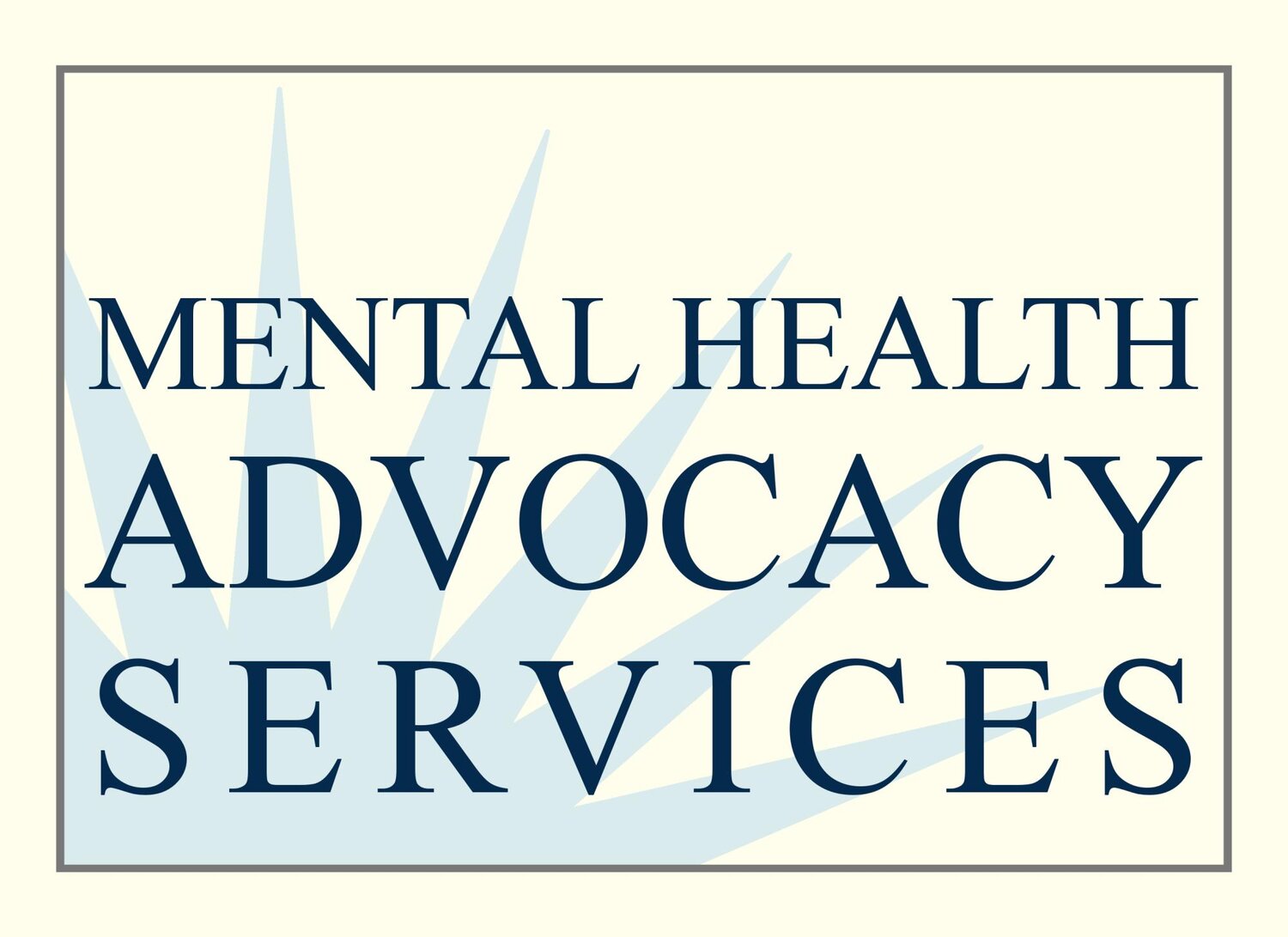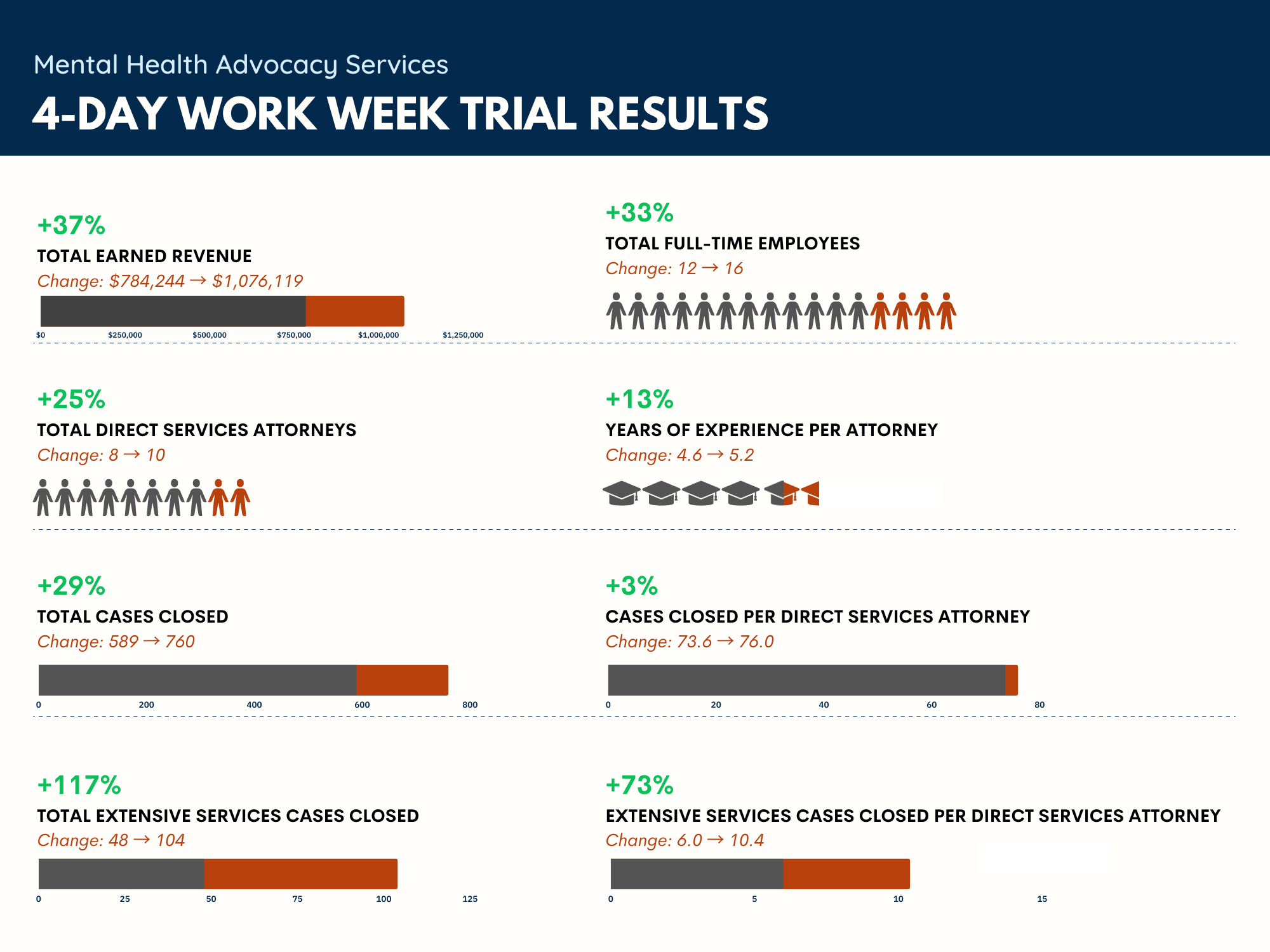4-Day Work Week Update
Dear Friends,
Earlier this year, Mental Health Advocacy Services made the decision to trial a 4-day work week as part of an international, six-month pilot program with 4-Day Week Global. We were intrigued by the potential benefits a 4-day work week held including improved productivity, improved retention and recruitment, and increased work/life balance for our advocates. Our team embarked on a simple mission: to learn whether we could work fewer hours and produce the same (or better) outcomes (which is what the vast majority of organizations who have switched to a 4-day work week have experienced).
Well, the results are in! Here is what we experienced during our six month trial of a 4-day work week (as compared to the same six month period the prior year):
To sum up the highlights from the results of our trial of a 4-day work week:
We experienced significant increases in both revenue and staff with a 4-day work week.
Our delivery of free legal advice and counsel did not experience any service interruptions, as evidenced by the fact that we closed slightly more cases per attorney during the trial than we had the prior year.
With a 4-day week, we were able to recruit and retain more experienced attorneys who in turn were able to provide more extensive services to our clients.
We also asked our staff to complete pre and post-trial surveys that sought to measure any impact the 4-day work week had on staff members' quality of life. Here's what the surveys showed:
As you can see in the charts above, our staff reported improvements in their mental and physical health, work-life and work-family balance, and overall life satisfaction at the end of the 4-day week trial as compared to their pre-trial ratings of these same categories. The caveat was that our staff reported a 7% increase in work intensity (i.e. working to tight deadlines and at high speeds), that resulted from condensing their work into a shorter work week.
If you've made it this far, you're probably wondering what's next for us! After reviewing all the data collected during the trial, we decided that the vast pros outweigh the minimal cons and so Mental Health Advocacy Services will permanently adopt a 4-day work week starting January 1, 2023. I am excited for this new era at Mental Health Advocacy Services and I look forward to contributing to the not-so-radical-anymore, global conversation about the four-day work week and sharing our experience with others.
Sincerely,
Jenny Farrell
EXECUTIVE DIRECTOR
P.S. The results of the full trial are now available and show that the other trial participants had an equally positive experience as MHAS and are all now permanently adopting a 4-day work week.


